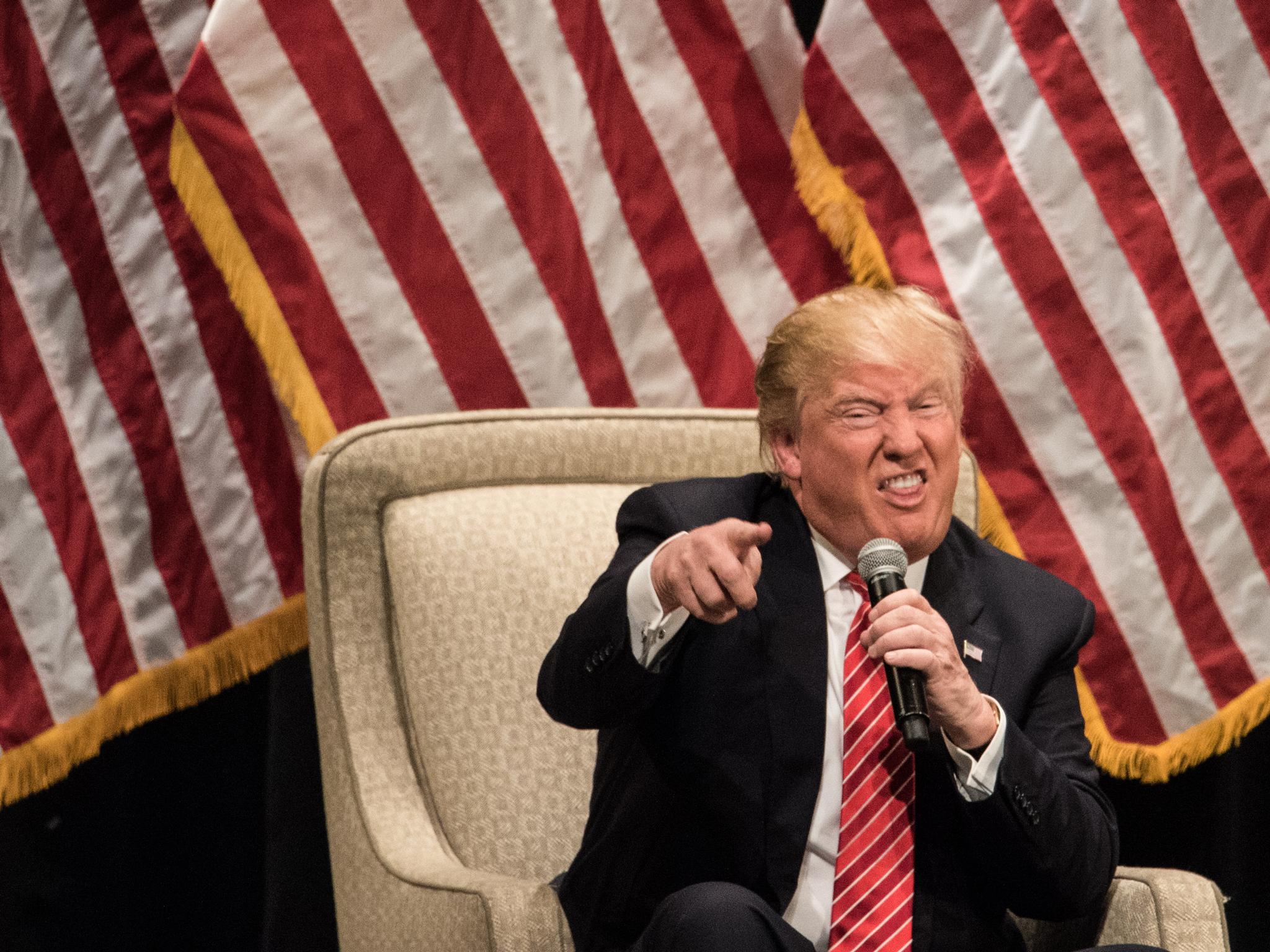Why Donald Trump claimed he was right about Islam after Orlando while Obama didn't mention Muslims at all
Remember Norway's Anders Breivik? Expert after expert was interviewed on TV and predicted likely links between the killer and al-Qaeda, only to be proved utterly wrong. Bear in mind that America has a long history of mass killings unconnected to radical Islamism


Your support helps us to tell the story
From reproductive rights to climate change to Big Tech, The Independent is on the ground when the story is developing. Whether it's investigating the financials of Elon Musk's pro-Trump PAC or producing our latest documentary, 'The A Word', which shines a light on the American women fighting for reproductive rights, we know how important it is to parse out the facts from the messaging.
At such a critical moment in US history, we need reporters on the ground. Your donation allows us to keep sending journalists to speak to both sides of the story.
The Independent is trusted by Americans across the entire political spectrum. And unlike many other quality news outlets, we choose not to lock Americans out of our reporting and analysis with paywalls. We believe quality journalism should be available to everyone, paid for by those who can afford it.
Your support makes all the difference.Donald Trump, knowing his target audience only too well, was quick to claim the Orlando massacre as evidence of his own prescience (“appreciate the congrats”, he tweeted) and of the dangers to the US of Islamist extremists. As part of an election narrative in which there are fewer shades of grey than Trump’s hair, his comments were applauded by supporters but sickened many others.
On the other side of the political fence, President Obama and the Democratic presidential nominee, Hillary Clinton, were more circumspect about rushing to judge the role of religion in the attack. Both condemned it as an act of terror and argued that it was a reminder of the need to implement tougher controls on gun ownership. Trump, with due inevitability, criticised his opponents for not mentioning “radical Islamic terrorism” and suggested the President should “resign in disgrace”.
These contrasting responses have to be seen in the light of America’s upcoming election. But they resonate with journalists, who frequently find themselves in the position of having to work out how quickly and definitively to apportion responsibility and ascribe motive when there is an outrage of the kind witnessed on Sunday in Florida.
In this particular case, news of the atrocity started to come through shortly after 8.30am British time and The Independent’s first report was published at 8.47, noting that a gunman was said to have taken hostages at a nightclub and was believed to have opened fire. We published numerous updates as the morning unfolded but were still reporting at midday that the motive for the attack was unknown, although soon afterwards we added that police were describing the killings as suspected terrorism. Trump’s first tweet was along similar lines. At around half past two we reported news about the killer’s identity, including the fact that Omar Mateen was a US citizen and the son of Afghan immigrants.
By 4pm, Trump was sufficiently emboldened to send his inflammatory tweets linking the crime to Islam. Indeed, as further updates emerged from the authorities, it appeared that Mateen’s affiliation to Isis was real. According to the FBI, he called emergency services to pledge his allegiance to the terror group before embarking on his hideous spree – and Isis, through its news channels, claimed responsibility for his actions. The Independent, and others, reported the developments as they happened.
All in all, there is little evidence of mainstream news outlets making wild assumptions about the Orlando shootings. Perhaps journalists are more wary about jumping to conclusions after the act of terror committed by Anders Breivik in Norway in 2011. As events unfolded there, expert after expert was interviewed on TV and predicted likely links between the killer and al-Qaeda, only to be proved utterly wrong. Bearing in mind too that America has a long history of mass killings unconnected to radical Islamism, there was further reason to guard against over-eager suppositions as to a ‘religious’ motive for this latest horror.
Then again, the initial, factual reporting of terrorist outrages is only one part of the equation. Just as important is the analysis that follows. That is why a politician like Trump is so dangerous: from a narrow factual basis, he conjures narratives which fit his political agenda and illiberal outlook.
So in this case, we know that Omar Mateen was a Muslim, the son of immigrants from Afghanistan; we are told by his father that he had expressed anger about homosexuality; and we know he claimed an association with Isis. We know too that other Muslims have been quick to condemn him. Other points remain less clear: did he have contact with other extremists for instance; were there links to Isis other than those in his mind; was his mental health generally sound?
While the authorities grapple with those seemingly vital points, right-wing commentators and politicians will not hesitate to fill in the gaps. Trump for one has already concluded that he was correct all along, that the position is clear: Mateen acted entirely because of his religion, Muslims are a danger to America, large numbers are involved in Isis-inspired plots, and the US should – at the very least – shut its doors to new arrivals who profess to follow Islam. In our post-truth, post-nuance era it is not only possible to get away with being blind to complexity; it may even show the way to the White House.
Join our commenting forum
Join thought-provoking conversations, follow other Independent readers and see their replies
Comments